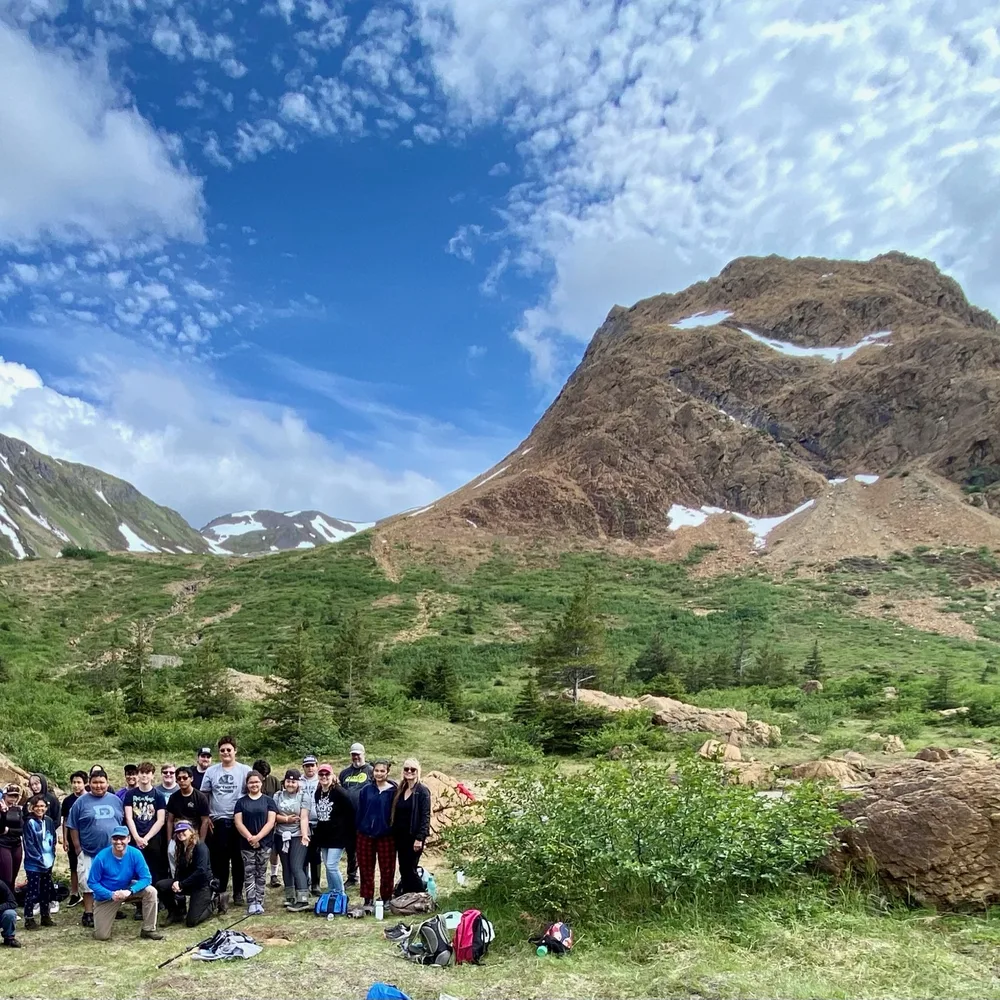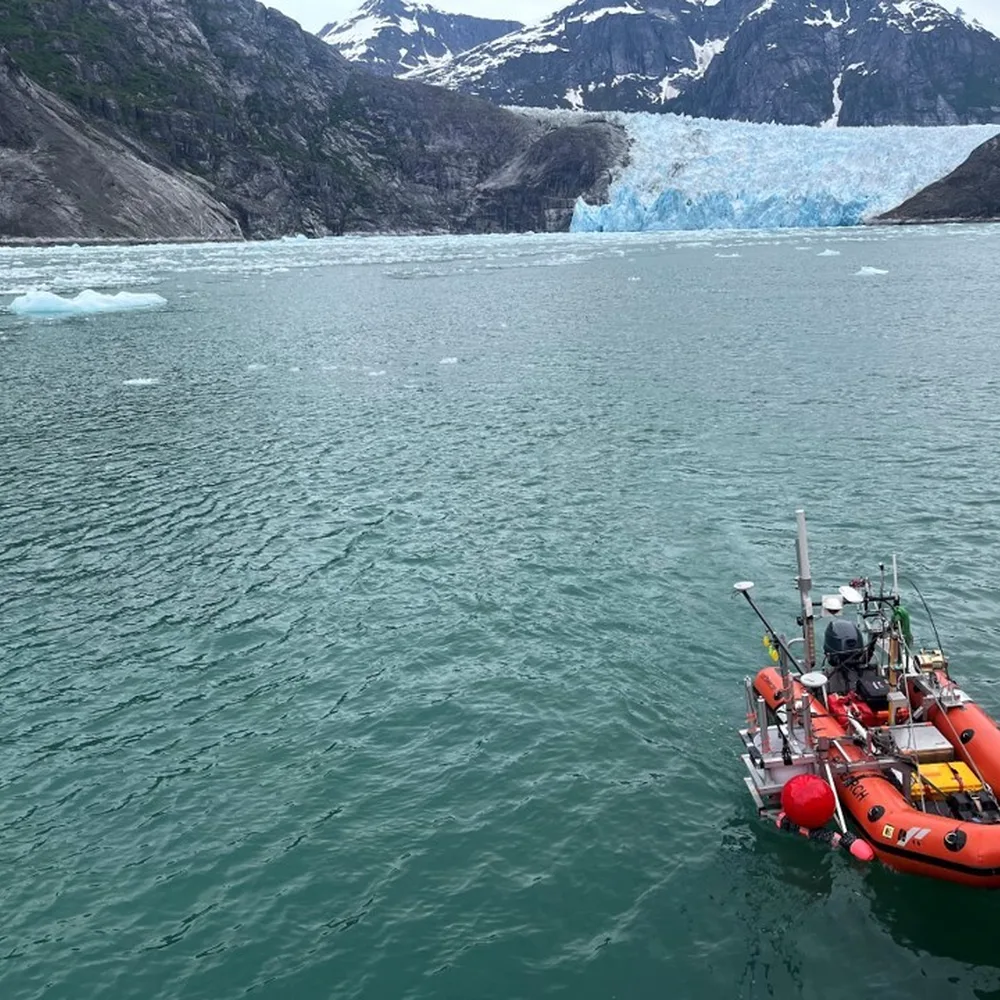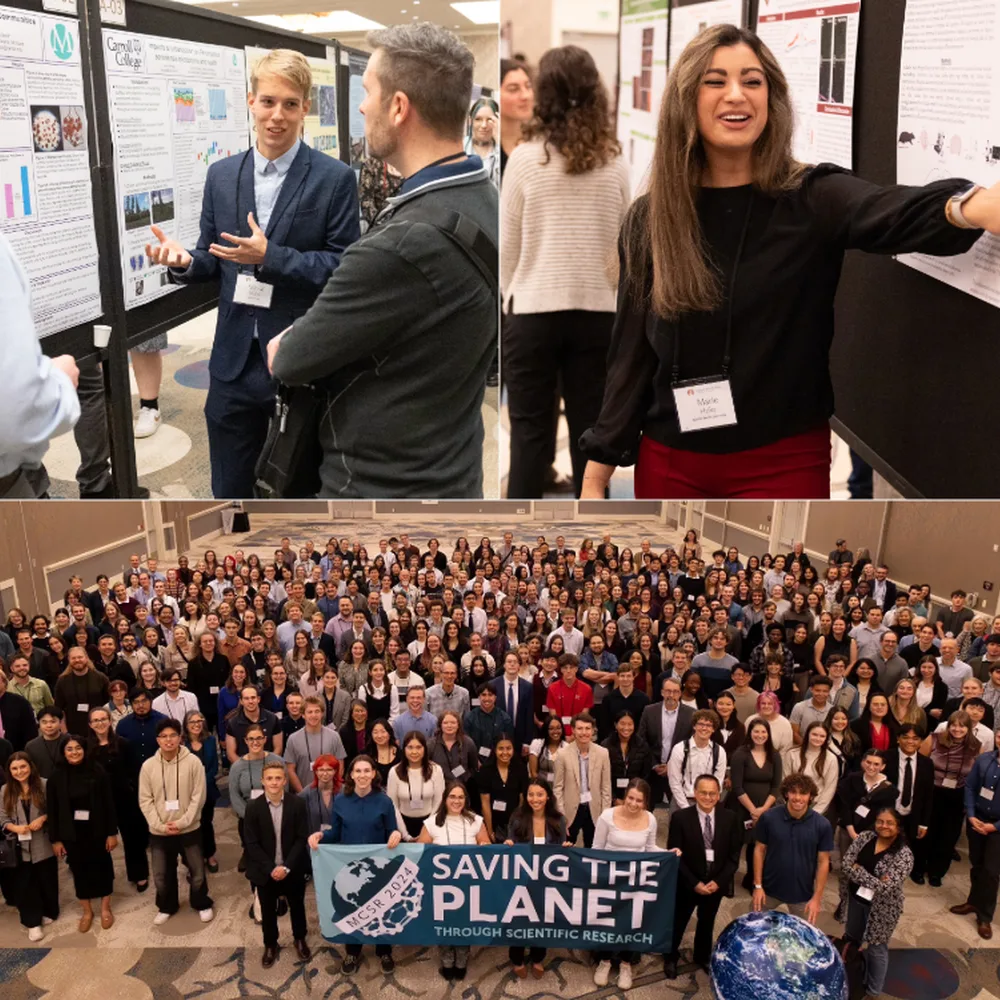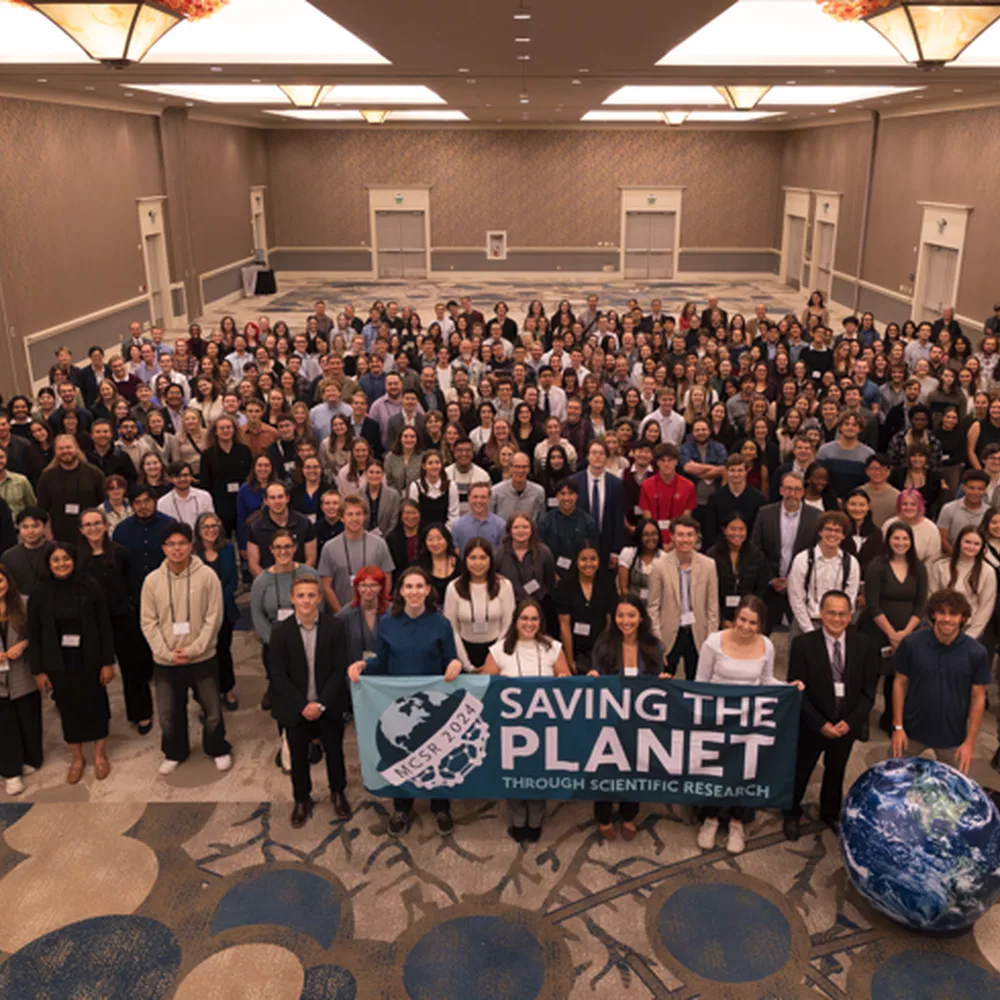Purpose and Background #
The Collaborative Research Alliance initiative is aimed at boosting the productivity of research being pursued at private undergraduate colleges and universities in the Trust’s funding region. For reasons of time and resources, it is challenging for the faculty to sustain vibrant, productive, and externally funded research programs. Despite these challenges, faculty members have done remarkably well.
At the February 2014 convening of chief academic officers and grants administrators from private undergraduate institutions, leaders expressed a need to break through from the current dynamic plateau in undergraduate research productivity and vitality. One way to do that would be to enable faculty researchers to form networks and work with similarly minded colleagues from Trust-funded undergraduate institutions. This would enable the researchers, who often felt isolated at small institutions to join forces, collaborate, share ideas and instrumentation, and tackle larger, greater, and more fundable projects. For such a collaborative idea to work, it must be built on researchers with a common research interest, although they may come from different disciplines. They must also have the right “chemistry” and support from their institutions, as well as the expertise, skills, and instrumentation needed to energize and propel the research program to a higher and more competitive level for sustained federal support. Two collaborative research alliances were piloted in 2015 and both were concluded this year to be highly successful in reaching the objectives of the idea. One project was focused on materials science and solar energy concentration, and the team was composed of researchers from the University of Puget Sound, Pacific Lutheran University, George Fox University, and Western Washington University. The other project’s research was focused on developmental biology, neurobiology, and biological imaging, and the group was composed of researchers from Whitworth University, Lewis and Clark College, and Reed College.
Following the success of the pilot programs, at the October 2019 convening of chief academic officers and grants administrators from private undergraduate colleges and universities, the leaders expressed a strong desire to continue to develop the collaborative initiative, with the intention that the institutions will form the alliances from the grassroots level. It is from this basis that RAISE 1.0, Research Across Institutions for Scientific Empowerment, a program of the Collaborative Research Alliance initiative was born.
Goals of RAISE #
- RAISE will enable research-active natural science faculty from mainly private predominantly undergraduate institutions and small group of research-active public undergraduate universities, to collaborate and pursue synergistic, cutting-edge projects at a higher level of sophistication and scope than each group would pursue on their own.
- Along with strong support by the institutions in each alliance, RAISE will support high quality and competitive research projects that can be sustained through the involvement of undergraduate students, the production of impactful peer-reviewed publications, and garnering on-going research funding from federal agencies, such as the NSF and NIH.
Important Information #
- An alliance interested to participate in this program must contact Dr. Moses Lee, Senior Director for Scientific Research and Enrichment Programs, to ensure the team is eligible to approach the Trust. Private colleges and universities invited to the MCSR Conference are eligible, along with a few select research-active public predominantly undergraduate institutions, if they would add significantly to the quality and competitiveness of the research project being pursued. Interdisciplinary programs within the natural sciences are ideal, as is a group of researchers from diverse backgrounds.
- Each alliance must have at least three-member institutions (one MCSRP; one non-MCSRP private undergraduate institution; and one of the alliance’s choosing). Maximum of four institutions (the fourth is also the alliance’s choosing). Participating institutions must develop articulation agreements between institutions. The agreement should include, but not limited to, the following items: identify the coordinating institution; the division of the budget that corresponds to the cost share, as well as specific duties; and a reimbursement plan. The Trust does not allow funds to be “passed through” from one organization to another, thus, the only mechanism for the coordinating institution to transfer funds is through reimbursing expenditures incurred by member institutions on an agreed upon schedule. The following institutions are members of MCSRP: Gonzaga University; Lewis & Clark College; Linfield College; Northwest Nazarene University; Pacific University; Pacific Lutheran University; Seattle University; University of Portland; University of Puget Sound; Whitman College; and Willamette University.
- There is not a “lead” institution—all are considered equal partners. But, one institution must be the fiduciary coordinator. Either an MCSRP or non-MCSRP school can take on this role provided sufficient infrastructure and support are available to manage the grant. The “coordinating institution” will manage the following: articulation agreements; grant administration that includes submitting timely reports (including the final report); requesting payments; reimbursing expenses of the member institutions; and other matters to support the grant. (A RAISE grant allows up to 10 percent to be allocated to support administrative costs.)
- An institution can participate in only one alliance in this initiative. The Trust recommends that faculty researchers who are interested in exploring the RAISE program should first check with their respective grant administrator as well as Dr. Lee before starting the process to see if they are eligible to apply.
- Multiple faculty researchers from one institution can participate in an alliance application.
- Duration of RAISE: Alliances that are eligible to apply to this program must submit a Scientific Research Letter of Inquiry (SR-LOI) in Fluxx, the Trust’s online grants portal, as a preliminary step to the Scientific Research (SR) application, anytime from this point on but no later than April 1, 2022. Submitting an SR-LOI by this date will give the alliance the time needed to submit a full SR application in Fluxx by August 1, 2022 (or earlier). This proposal submission date will allow the Trust 6-9 months to fully evaluate the proposal and for a decision to be made in mid-March 2023, in time for summer research in 2023].
- The total cost for the grant can be up to $300,000 for three years, $100,000 per year ($200,000 from the Trust and $100,000 from the alliance, representing a 33.3 percent cost share).
- The third payment will be contingent upon the alliance’s submission of a major research proposal to the NSF or NIH or similar programs. Alliances must meet this contingency by the end of the third year of signing the grant agreement.
- See a list of potential PIs interested in a collaborative project who have expressed an interest to participate in the RAISE program. If a PI or grant administrator would like to be added to this page, please share the name(s), institution, areas of interest, and website to Marybeth Stewart Goon and Dr. Moses Lee.
Selection Criteria #
- Is the proposed project built on and strengthened by the collaborative alliance? Is every member of the alliance appropriately engaged in the project? Is the coordinating institution capable of managing the application if a grant is made?
- Is the quality of the proposed research cutting edge and competitive? Is the quality and history of productivity of the researchers sufficient to pull off such an ambitious project? Is the quality of the research environment at each institution, the quality of the instrumentation available to support the proposed research, and the support from each institution sufficient to enable the proposed research?
- What is the likelihood that the proposed research will lead to impactful publications and subsequent continuing research funding from federal agencies, such as the NSF and NIH?
- Are young scientists, especially undergraduate students, effectively engaged in the project? When justified, technicians can be included in the project.
The Grant Application Submission Process #
- As mentioned in the “Important Information” section, prior to exploring the possibility of submitting a RAISE proposal, researchers should first contact their respective grants administrators and Dr. Lee to determine their eligibility. If the alliance is eligible to apply, the grants administrator working with the PI will submit a SR-LOI through the Trust’s grants portal. If/when the SR-LOI is approved, the coordinating institution and PI will be invited by email to submit the proposal.
Instructions to access and complete an SR-LOI in Fluxx are given on the Trust’s website. Here is a brief description of the sections: Organizational Information (this will be the coordinating institution); Project Description (project title; anticipated date of application submission, project summary [this should provide a brief description of the proposed collaborative research project, its significance and relevance as a “cutting edge” project; its scope and competitiveness as synergized by the collaboration; the members of the alliance and their expertise; level of commitment and support by member institutions, …etc.]; and Summary of Project Budget (total project cost, amount requested, and described how the Trust funds will be used including the cost share). - If the SR-LOI is approved, the grant administrator and PI from the coordinating institution will work with the grants administrators and co-PIs from each participating institution to complete and submit the grant application in Fluxx. As a scientific research grant, please refer to the Instructions given on the Trust’s website and look under the description for “Scientific Research Instrumentation Program.” At the time of the SR-LOI approval, Dr. Lee will send as an email attachment an Addendum to the Instructions that will provide additional information on how each section of the proposal narrative should be prepared, and what additional information is needed specifically for the RAISE program, such as the articulation agreements. A budget table and a list eligible items for this initiative are also provided in the Addendum along with other information.
If you have questions please contact Dr. Lee or call the Trust’s office 360.694.8415, or you may contact Ms. Marybeth Stewart Goon or call our office phone number.






